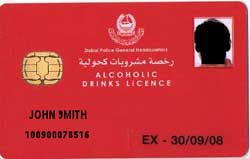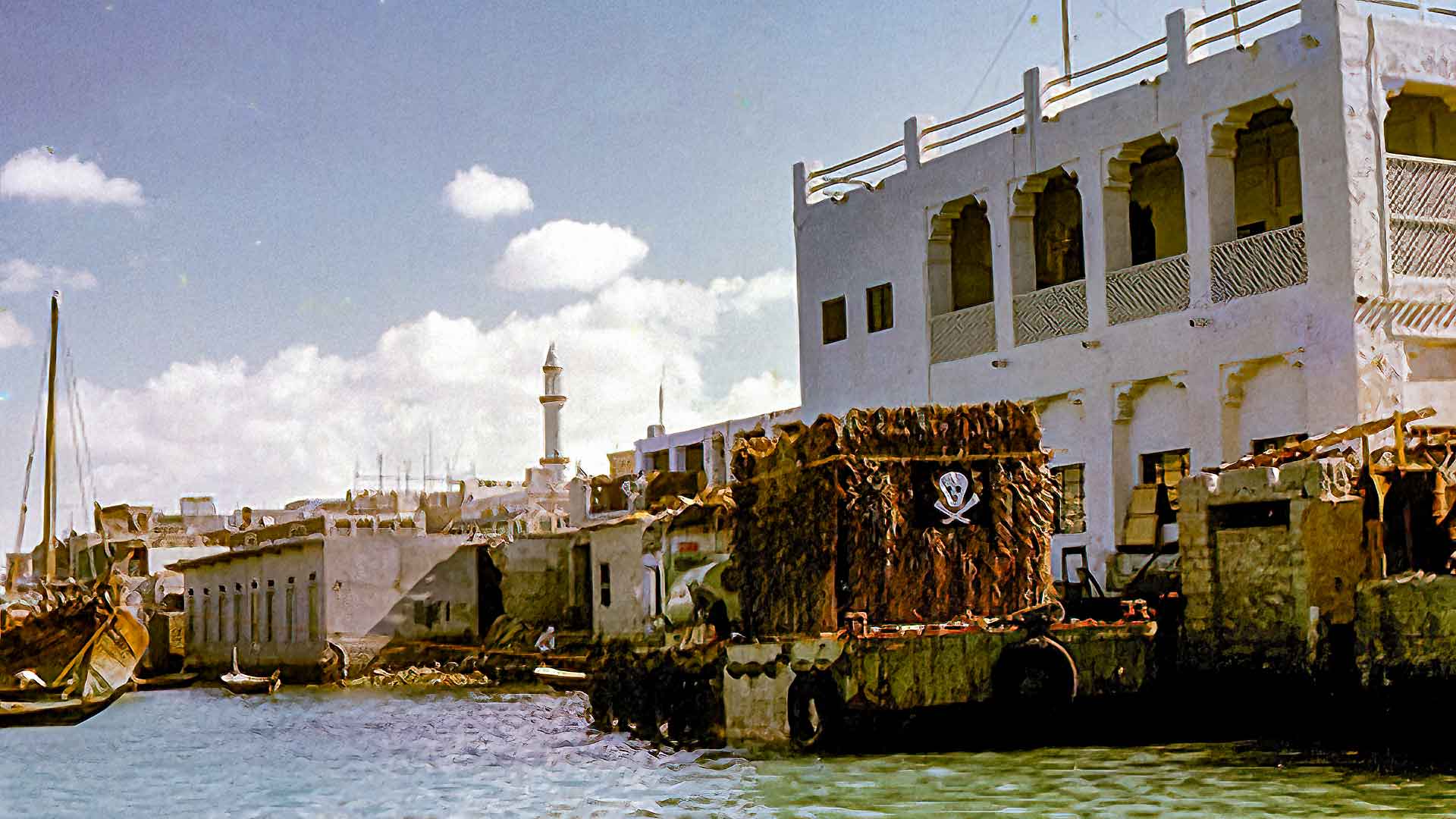Alcohol was "Big Business" in 1970s Dubai
Dubai had no restrictions on Alcohol sales or its consumption at the start of 1970s.
All types of alcohol and popular brands were freely on sale in Cafes, Restaurants, Hotels, Clubs and Liquor Stores. Why? Because Alcohol was a major trading commodity back then. Alcohol was legally imported in commercial quantities into Dubai by two main Trading Houses, Gray Mackenzie and Company and African and Eastern. They held agencies for all the major international brands.
Their main market was the Gulf Countries.
Merchants purchased Alcohol from these two Trading Houses at wholesale prices, transported the alcohol to a Gulf Country. There it was imported illegally and sold on the style20 market at inflated prices. This was legitimate business as far as Dubai was concerned and lawful - in Dubai.
Delivery to the external market was another matter. Countries receiving the alcohol regarded the transactions as smuggling. Dubai's Merchants trading in Alcohol were often experienced Gold Traders with experience of smuggling. They knew how to get a product to market whatever the barriers. In Dubai, trading in alcohol (or any other commodity) was Known as the Import/Export business. Dubai's view was what happened in external markets was not Dubai's concern!
Incentives to trade alcohol were huge.
A bottle of Johnny Walker Red Label whiskey sold in a neighbouring country could fetch 30 times more than its Dubai purchase price.
Traders did not deal in single bottles - they purchased thousands of cases at a time.......
Albert Armstrong remembered from 1976
I was the newly appointed Liquor Manager at Gray Mackenzie & Co.
I was in my new Office when this scruffy gentleman walked into my office
"I want Whisky" he announced.
I wasn't sure if he wanted to be given some whiskey or buy a bottle or two.
"How many do you want?" I enquired
"5,000 cases - Johnnie Walker Red Label"
That took me aback for the moment so I asked
"How are you going to pay?"
He reached into his Dishdasha and began pulling out wads of Dirham notes still in their bank wrappers.
He continued until my desk was covered in wads of Dirham Notes.
Now I understood what he wanted!
The deal was done!
5,000 cases of Johnnie Walker Red Label Whisky delivered.
I didn't ask what he would do with 5,000 cases of Johnnie Walker Whisky
Or where they would go
I didn't want to know!
"A Glass of Wine with Your Lunch?"
Back in 1970s Dubai, I worked a six day week.
Friday was the official day of rest and an opportunity to spend time together as a family.
Friday may have been spent at Jumeirah Beach or Dubai Country Club or having a family lunch at one of Dubai's restaurants......
There were not many family orientated restaurants in 1970s Dubai.
One that became a family favourite was Chalet Swisse on Al Maktoum Street.
Our children were very young back then - Chalet Swisse had baby high chairs and served children's meals so it suited us.
Kids could have their usual sausages and chips while Mum and Dad chose from an extensive menu of reasonable food.
More importantly they could also choose from a substantial rack of French Wines covering the far wall!
Chalet Swisse was an ordinary "run of the mill" family restaurant, yet it had this magnificent range of fine French Wines on offer!
No wonder it was our favourite restaurant!
— Len Chapman reminiscing about 1970s Dubai
Using Diplomacy to solve an Alcohol Problem
In 1979 Shah of Iran was deposed and replaced by Ayatollah Khomeini. He applied strict Islamic Laws in respect of alcohol consumption.
Shortly after, Iran's new Foreign Minister was to make his first visit to Dubai. Dubai Government soon announced the sale of Alcohol was to stop immediately. This appeared to be Sheikh Rashid making sure Dubai did not offend the Iranian Foreign Minister in any way.
While this was obviously the main reason, there was also an underlying unstated reason. Dubai Government had lost control of Alcohol distribution within Dubai. Alcohol had become freely available to the extent even roadside drink carts were offering Alcohol to go with any Pepsi sold. Alcohol was "walking out the backdoor" of legitimate businesses and into the black market.
Iranian Foreign Minister's visit provided Dubai Government with the opportunity to regain control of the local Alcohol trade.
Alcohol Controls

After the Foreign Minister's departure, Dubai Government implemented Liquor Licences to closely control sale of Alcohol in commercial and private premises and to individuals.
Hotels had to apply for a Liquor Licence before being permitted to sell Alcohol to their registered guests. Then a carefully controlled system for individual Liquor Permits based on Nationality, religion and salary followed. That permitted certain sections of Dubai's resident population to purchase Alcohol from Dubai's two registered Alcohol Trading Companies. These Liquor Permits stipulated the maximum amount of Alcohol an individual could purchase each month.
Finally private Clubs were required to apply for Liquor Licences and then subjected to regular inspection and also "surprise" inspections.
Administration and control of the Liquor Licensing System was with Dubai Police. Other businesses such as Cafes, Snack Bars etc were no longer permitted to buy or sell Alcohol. Liquor Permits became an accepted part of every day 1980s and 90s life
Inevitably alternative sources of supply appeared in nearby Emirates making buying Alcohol cheaper and easier but not without risk!
Blackmailers target Expats carrying alcohol in Sharjah
Police say they have arrested several criminals operating the ‘bump-and-style20mail’ scam
Blackmailers target Expats carrying alcohol in Sharjah
An expat has revealed how he was targeted by scam artists looking to extort money after he attempted to transport alcohol into Sharjah.
Known as the ‘makeup-and-blackmail’ scam, Gulf News reported that several Expats have been targeted as they crossed the Al Taawun bridge in Sharjah, having been spotted coming out of alcohol shops in neighbouring emirates.
The scam, which has been in operation for over a decade, involves Expats being followed from an alcohol shop into the emirate of Sharjah, where possession and consumption of alcohol is banned.
The scam artists then bump into the car of the unsuspecting expat, who then stops and is faced with a demand for money in order to avoid police being called. As alcohol is illegal in Sharjah, the expat is asked to pay sums of several thousand Dirhams in order to avoid being arrested and spending time in jail.


